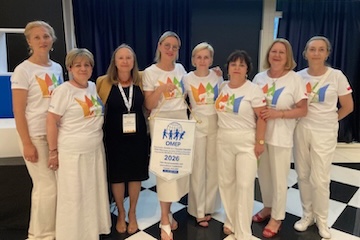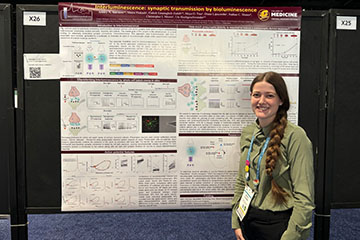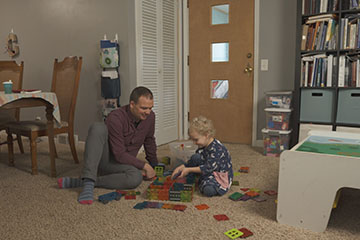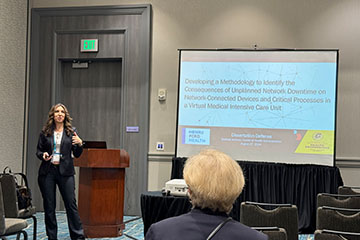Graduate student researches the uncertainty of food allergies in college students
Kaitlyn Coons studies the uncertainty of food allergies in students transitioning to college
Kaitlyn Coons, a communication graduate student, researched how college students manage the uncertainty of food allergies when transitioning to college. She conducted semi-structured interviews with 20 college students ages 18-23 who have at least one food allergy. After she conducted the interviews, she used the uncertainty management theory (UMT) to analyze her findings. UMT states that uncertainty causes anxiety and individuals are highly motivated to reduce uncertainty.
Her research aims to understand how uncertainty related to food allergies impacts students' transition to college and independent life. Students with food allergies who transition to college are experiencing new social networks and whether to disclose their allergies. They also have to learn how to seek information regarding the food they eat and what to avoid.
The findings show a self-perception of being an “other,” which felt negative to some participants and neutral to others. When it comes to uncertainty management, there were a variety of findings. Some participants felt that if there was any uncertainty about food choices, they would always seek information, so they do not endanger their lives. Others felt they would avoid asking for information to avoid inconveniencing people.
Coons also found a variety of answers on how students disclose their food allergies. Some students felt they were burdening others by telling them about their food allergies while some will constantly remind them about their allergies. If an allergy is life-threatening, students feel more inclined to tell people and say how severe it is.
The inspiration for her research comes from Coons’ experience as a college student living on campus with multiple food allergies. She felt that many on-campus opportunities are driven by food, but these events lack awareness of those with dietary restrictions. She hopes to raise awareness for people with food allergies and better educate those who have never interacted with food allergies.
This story is brought to you by the Office of Research and Graduate Studies.




